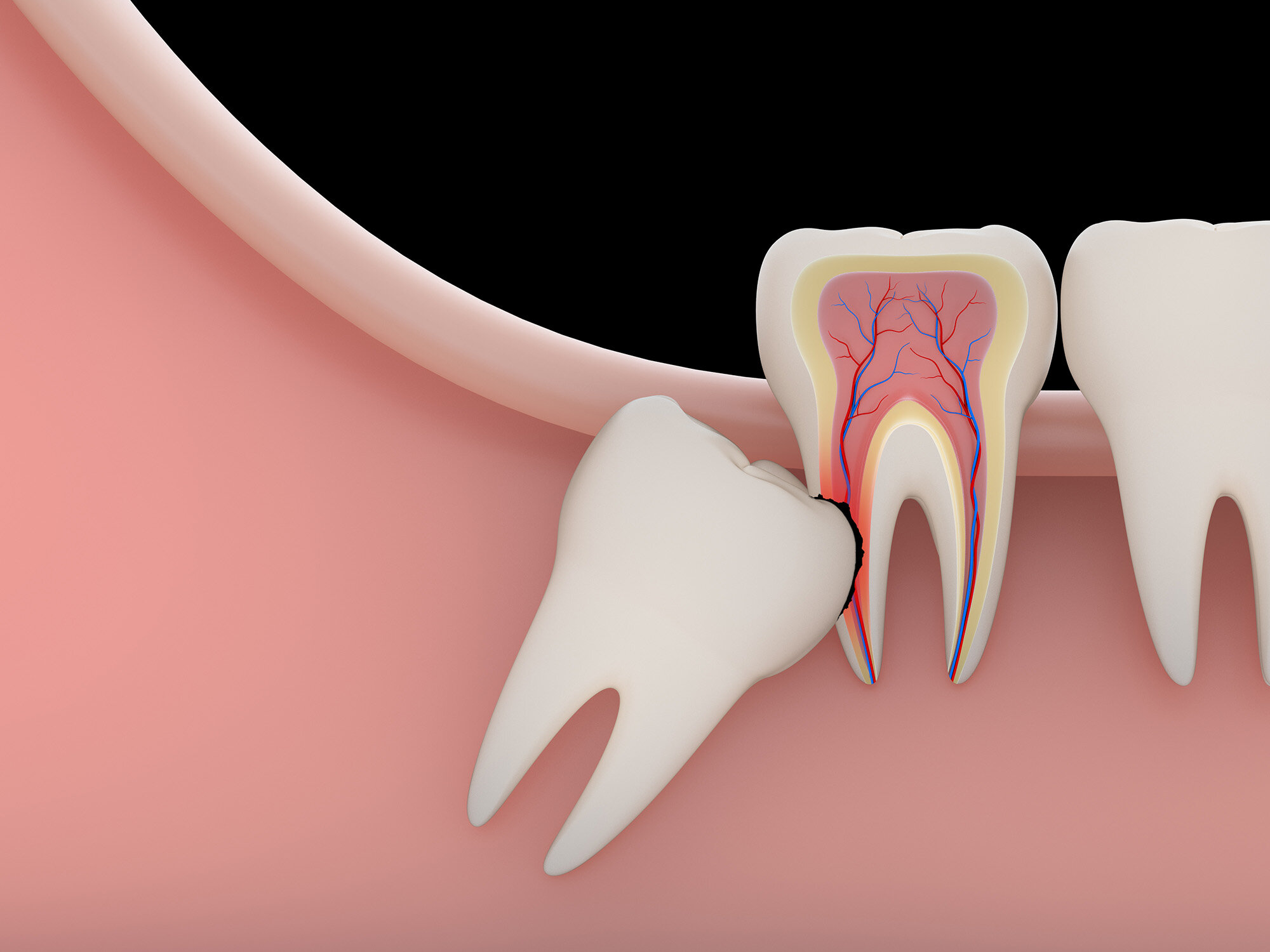Wisdom Teeth Removal
Oftentimes, people are unaware that they may have an additional set of teeth growing under the surface of their gums that can cause significant problems.
This third set of molars, or “wisdom teeth” as they are more commonly known, are often undetectable until they become a problem. Sometimes, they grow beneath the surface of the gums, and an x-Ray must be obtained to determine if they are present. Other times, the teeth may emerge into the oral cavity, but they frequently cause a variety of problems.
While wisdom teeth in certain instances may provide added value, their unpredictable growth pattern does not typically allow patients to experience their benefit. Many people simply do not have enough room for these teeth to grow in properly, which can lead to difficulty maintaining appropriate oral hygiene.
WHY SHOULD I GET MY WISDOM TEETH REMOVED?
The presence of wisdom teeth makes patients more susceptible to a variety of oral problems, including but not limited to:
Swelling, stiffness, tenderness, pain and infection.
Bacterial growth, gum disease, tooth decay, and even bad breath caused by periodontal disease.
Increased risk of tumor growth and cyst development, which can in turn cause major issues in oral health and the jaw bones.
Does everyone have to get their wisdom teeth out? The doctors at Oral Surgery Specialists of Atlanta may recommend that wisdom teeth removal early, usually during the mid to late teens, even if they haven’t begun to emerge from the gums yet.
The removal process is generally safer if wisdom teeth are removed early because the roots of the teeth are not fully developed, and younger patients are more likely to experience a quick recovery after surgery.
Additionally, early removal may prevent the potential injury to a nerve that runs through the lower jaw.
And if you have impacted wisdom teeth and are experiencing painful symptoms or no symptoms at all, you should get evaluated by an oral surgeon to see if it’s time for removal.
Prior to wisdom teeth removal, you will receive a thorough oral examination, panoramic X-ray, and possibly a 3D CT scan of the jaws to determine the position and size of the teeth.
Your procedure will be performed in the same office where you have your pre-surgical consultation.
Impacted Third Molars
WHO SHOULD REMOVE MY WISDOM TEETH
Here are our thoughts on oral surgeons, general dentists, and who you should select to remove your wisdom teeth:
Our skilled surgeons and highly trained office staff will ensure that you are fully informed by answering any questions you may have before your procedure, as well as help you to choose the method of anesthesia that is works best for you.
At Oral Surgery Specialists of Atlanta, we do everything in our power to ensure that you have a comfortable and rapid recovery following your surgery and achieve optimum treatment results.
Drs. Aiken and Shessel have been extensively trained to administer hospital-level anesthesia.
Our office offers multiple anesthetic options, including:
Local Anesthesia. A numbing injection that is applied directly to the surgical site.
Nitrous Oxide. This anesthesia option, also known as “laughing gas,” is used to calm and relax patients who elect to be awake during their procedure.
General Anesthesia. Anesthesia is administered through an intravenous (IV) line, suppressing your consciousness and allowing you to “sleep” during the procedure.
AN IMPORTANT WARNING ABOUT POST-OP PRESCRIPTION DRUG USE FOR PAIN
At Oral Surgery Specialists of Atlanta, we are committed to reducing, and even eliminating the need for potentially dangerous, habit-forming narcotics following your surgery. In fact, we highly recommend Exparel, a one-time injection for pain relief. You can read more about Exparel here.















![Why get wisdom teeth extracted? [Infographic]](https://images.squarespace-cdn.com/content/v1/5c360a8bb823f9477a1a8793/1589312836815-K4TT4ZC1QXLDSEHV5G2H/wisdom+teeth.jpg)

